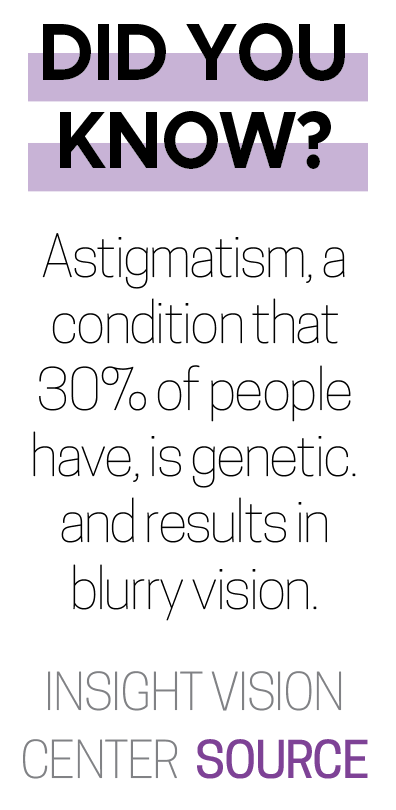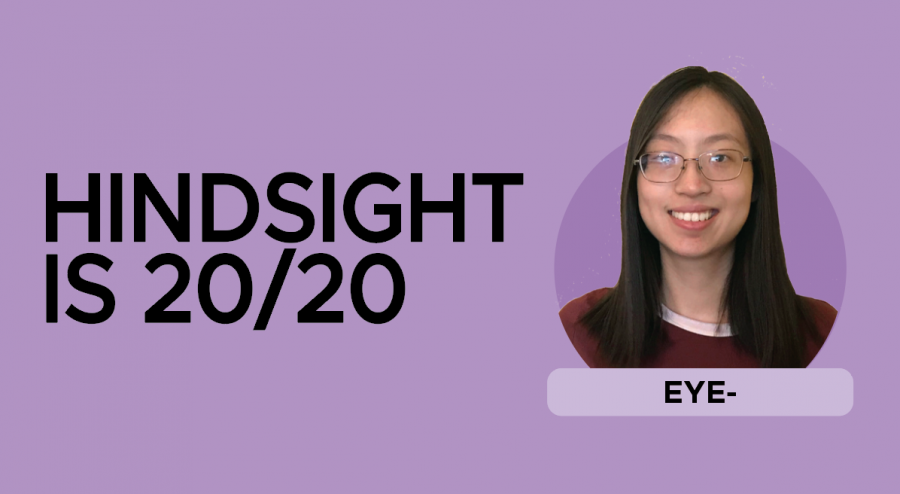Growing up in a Chinese household, I was always told from a young age: “You’re too close to the screen,” “Don’t forget to do eye exercises (yes, they’re a thing),” “Make sure you have good lighting!” and the like. My parents even banned me from reading at one point, because apparently, that was what was why I became nearsighted by first grade (an unfortunately true story). So, when we visited an eye doctor, my parents made it a point to ask what reading too much would do to my eyes—and the optometrist promptly told us that I could read for hours in pitch-black darkness because eyesight was purely due to genetics.
Of course, 7-year-old me took it as a cue to self-righteously take back my confiscated Magic Tree House books once we got back home.

However, the full picture isn’t as clear-cut as I’d thought as an elementary school student. In fact, the very same optometry place I’d visited as a child started requiring surveys on screen time a few years ago (clearly having revised their position on eyesight being “purely genetic”). As with the nature vs. nurture discussion, eyesight is probably a result of genes and environment. And while one can’t exactly change their genes (excepting epigenetics, but that falls under the nurture aspect), one can definitely control their environment to an extent.
And particularly with the introduction of technology and blue light—often at very young ages—as a necessary component of human life, eyesight will undoubtedly become a major concern of future generations. In fact, I feel like the issue of eyesight is, surprisingly, often forgotten, despite how vital it is to everyday life and the vast numbers of people affected by eyesight issues. You’re always told as a child, even in school: If you don’t brush your teeth, you’ll get cavities. You’re never told: If you read in the dark, you’ll get myopia.
Yet if you’ve ever stared at a screen for too long, you’ve probably gotten a headache. It’s because your eyes can’t handle that sort of strain. To maintain better eyesight, the typical health advice—eat healthy, exercise, get enough sleep—applies, as always. However, it never hurts to have sufficient lighting, to remember to blink, and to control your screen time.
After all, research, even from optics companies such as Essilor, has shown that while eye conditions generally have genetic roots, they are also affected by environmental conditions as well. So take this August, National Eye Exam Month, as an opportunity to be more conscious about how you treat your eyes.
The views in this column do not necessarily reflect the views of the HiLite staff. Reach Grace Xu at gxu@hilite.org

































![AI in films like "The Brutalist" is convenient, but shouldn’t take priority [opinion]](https://hilite.org/wp-content/uploads/2025/02/catherine-cover-1200x471.jpg)









































![Review: “The Immortal Soul Salvage Yard:” A criminally underrated poetry collection [MUSE]](https://hilite.org/wp-content/uploads/2025/03/71cju6TvqmL._AC_UF10001000_QL80_.jpg)
![Review: "Dog Man" is Unapologetically Chaotic [MUSE]](https://hilite.org/wp-content/uploads/2025/03/dogman-1200x700.jpg)
![Review: "Ne Zha 2": The WeChat family reunion I didn’t know I needed [MUSE]](https://hilite.org/wp-content/uploads/2025/03/unnamed-4.png)
![Review in Print: Maripaz Villar brings a delightfully unique style to the world of WEBTOON [MUSE]](https://hilite.org/wp-content/uploads/2023/12/maripazcover-1200x960.jpg)
![Review: “The Sword of Kaigen” is a masterpiece [MUSE]](https://hilite.org/wp-content/uploads/2023/11/Screenshot-2023-11-26-201051.png)
![Review: Gateron Oil Kings, great linear switches, okay price [MUSE]](https://hilite.org/wp-content/uploads/2023/11/Screenshot-2023-11-26-200553.png)
![Review: “A Haunting in Venice” is a significant improvement from other Agatha Christie adaptations [MUSE]](https://hilite.org/wp-content/uploads/2023/11/e7ee2938a6d422669771bce6d8088521.jpg)
![Review: A Thanksgiving story from elementary school, still just as interesting [MUSE]](https://hilite.org/wp-content/uploads/2023/11/Screenshot-2023-11-26-195514-987x1200.png)
![Review: "When I Fly Towards You", cute, uplifting youth drama [MUSE]](https://hilite.org/wp-content/uploads/2023/09/When-I-Fly-Towards-You-Chinese-drama.png)
![Postcards from Muse: Hawaii Travel Diary [MUSE]](https://hilite.org/wp-content/uploads/2023/09/My-project-1-1200x1200.jpg)
![Review: "Ladybug & Cat Noir: The Movie," departure from original show [MUSE]](https://hilite.org/wp-content/uploads/2023/09/Ladybug__Cat_Noir_-_The_Movie_poster.jpg)
![Review in Print: "Hidden Love" is the cute, uplifting drama everyone needs [MUSE]](https://hilite.org/wp-content/uploads/2023/09/hiddenlovecover-e1693597208225-1030x1200.png)
![Review in Print: "Heartstopper" is the heartwarming queer romance we all need [MUSE]](https://hilite.org/wp-content/uploads/2023/08/museheartstoppercover-1200x654.png)




